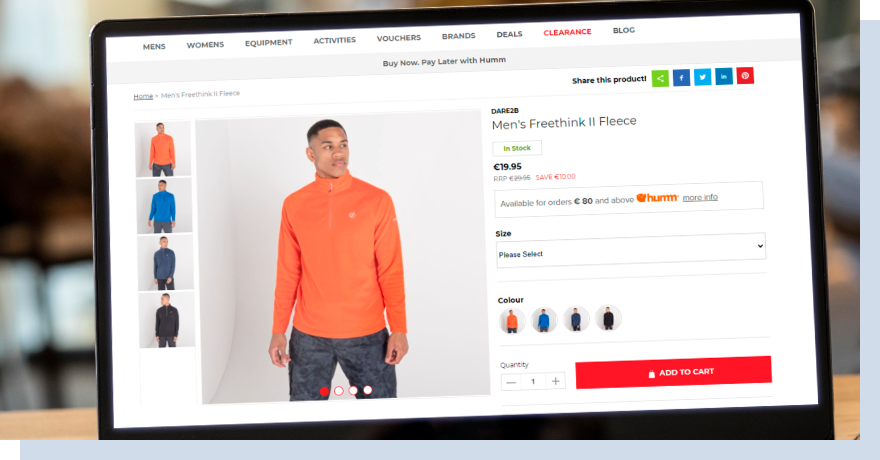In today’s increasingly digital world, data privacy has become a major concern for individuals and organizations alike. As the volume of personal information shared online continues to grow, so does the need to protect this data from unauthorized access and misuse. Data privacy refers to the practice of safeguarding personal information, ensuring that individuals have control over how their data is collected, stored, and shared. This article explores the significance of data privacy, its challenges, and the measures that can be taken to protect sensitive information in the digital age.
The Growing Importance of Data Privacy
Data privacy has become one of the most critical issues in the digital age, with personal information being collected by businesses, government agencies, and other entities every day. From social media profiles to online shopping habits, individuals generate vast amounts of data that can be exploited if not properly protected. Data privacy is important because it helps ensure that people maintain control over their personal information, preventing unauthorized access and ensuring that data is used responsibly. As breaches of personal data continue to make headlines, the significance of protecting individuals’ privacy has never been more apparent. Companies and governments must prioritize data privacy to build trust with consumers and avoid the potential for misuse or exploitation of sensitive information.
Data Privacy and the Risk of Cybersecurity Breaches
One of the main reasons data privacy is so crucial is the risk of cybersecurity breaches. Hackers and cybercriminals are constantly looking for vulnerabilities in systems to steal personal information. Without adequate data privacy measures in place, sensitive information such as financial details, passwords, and medical records can be exposed to malicious actors. A data breach not only threatens the security of individuals but also undermines the trust people place in organizations that handle their information. For businesses, a cybersecurity breach can lead to severe financial and reputational damage iowa headlines.com. This highlights the need for strong data privacy protocols, including encryption, access control, and regular security audits, to minimize the risk of breaches and protect sensitive information from being compromised.
The Role of Data Privacy Regulations
Governments and regulatory bodies around the world have recognized the importance of data privacy and have introduced various laws and regulations to protect individuals’ personal data. One of the most well-known regulations is the European Union’s General Data Protection Regulation (GDPR), which sets strict guidelines for how companies must handle personal data. The GDPR gives individuals more control over their data, including the right to access, correct, and delete their information. Similarly, in the United States, various state-level laws, such as the California Consumer Privacy Act (CCPA), aim to enhance consumer privacy protections. These regulations play a significant role in promoting transparency, accountability, and security in data collection practices, ensuring that organizations handle personal data responsibly and with respect for individuals’ privacy rights.
Data Privacy and Consumer Trust
Consumer trust is one of the most valuable assets a business can have, and maintaining a strong focus on data privacy is essential to building and retaining that trust. When customers provide their personal information, they expect it to be protected and used responsibly. Failure to prioritize data privacy can lead to a loss of consumer confidence and damage to a company’s reputation. In contrast, businesses that demonstrate a commitment to data privacy through transparent practices and robust security measures are more likely to foster long-term relationships with their customers. As consumers become more aware of their privacy rights and the risks associated with data sharing, businesses that take data privacy seriously will be better positioned to earn and retain customer loyalty.
The Impact of Data Privacy on Social Media and Online Platforms
Social media platforms and online services are some of the largest collectors of personal data. Every post, click, and interaction generates valuable information about users, which is often used to target ads or improve services. However, the collection and use of this data have raised serious concerns about privacy. Social media companies have faced significant scrutiny over how they handle user data, with high-profile incidents such as the Cambridge Analytica scandal bringing attention to the issue. As a result, individuals are becoming more cautious about sharing personal information on these platforms. The implementation of stricter data privacy policies and transparent user agreements is essential for these companies to rebuild trust and ensure that users’ information is protected.
Data Privacy Challenges in the Age of Big Data and AI
With the rise of big data and artificial intelligence (AI), the challenges associated with data privacy have become even more complex. AI systems rely on large datasets to function effectively, but this also means that personal information can be processed and analyzed in ways that may not always be transparent or ethical. Additionally, the use of big data in decision-making processes raises questions about how personal information is used to influence outcomes, such as hiring decisions, credit approvals, or healthcare treatments. As businesses and governments increasingly use AI and big data technologies, it is essential to implement strong data privacy frameworks to ensure that individuals’ rights are protected. Striking a balance between innovation and privacy is crucial to preventing misuse and maintaining public trust.
How Individuals Can Protect Their Data Privacy
While organizations have a responsibility to protect personal data, individuals must also take steps to safeguard their own privacy. One of the simplest ways to enhance data privacy is by using strong, unique passwords for each online account and enabling two-factor authentication (2FA) wherever possible. Individuals should also be cautious about the information they share online, especially on social media platforms. Regularly reviewing privacy settings and opting out of data collection programs can help reduce the amount of personal data that is shared. Furthermore, individuals should be aware of phishing scams and malicious links that could compromise their security. By adopting good data privacy practices, individuals can take an active role in protecting their personal information from unauthorized access and misuse.
The Future of Data Privacy
As technology continues to advance, data privacy will remain a critical concern. The increasing use of interconnected devices, such as those found in smart homes and the Internet of Things (IoT), presents new challenges for safeguarding personal information. Additionally, the growing prevalence of cloud computing and data-sharing platforms means that data is often stored and transmitted across multiple networks, making it more vulnerable to breaches. To address these challenges, both governments and businesses must continue to innovate and adapt their data privacy strategies to keep pace with technological advancements. The future of data privacy will likely involve a combination of advanced encryption methods, AI-driven security measures, and greater transparency in data collection practices to ensure that individuals’ personal information remains protected.
In conclusion, data privacy is an essential component of modern society, with far-reaching implications for individuals, businesses, and governments. As the digital landscape continues to evolve, so too must our approach to safeguarding personal information. By prioritizing data privacy, implementing robust security measures, and staying informed about potential risks, we can create a safer and more secure online environment for all.




